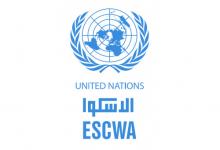The report also stressed that the cumulative impact of the 51 years of Israeli occupation and practices is multilayered and affects all aspects of life in the occupied territory, and that adherence to international law and the end of impunity are a prerequisite for the realization of peace and justice for all the peoples of the region.
Those conclusions were included in the Note of the Secretary-General on “the Economic and social repercussions of the Israeli occupation on the living conditions of the Palestinian people in the Occupied Palestinian Territory, including East Jerusalem and of the Arab population in the occupied Syrian Golan”, prepared by the Economic and Social Commission for Western Asia (ESCWA) and covering the period from 1 April 2017 to 31 March 2018.
The Note examines a number of Israeli practices and policies in Palestinian and Syrian territories that Israel has occupied since 1967, and their economic and social repercussions on the Palestinian and Syrian peoples.
The Director of Emerging and Conflict-Related Issues Division at ESCWA, Mr. Tarik Alami, presented this report to the Economic and Social Council in New York on 24 July 2018. Representatives of Member States, in addition to the representatives of the State of Palestine and the Syrian Arab Republic, discussed the report and issued a resolution in this regard as in previous years. This year’s resolution, however, included an additional paragraph on the situation of the Palestinian detainees in Israeli prisons and a condemnation of Israel’s detainment of the bodies of Palestinians.
The Note will be presented to the United Nations General Assembly in November, by which another resolution on the subject would be issued.
*****
For more information:Nabil Abu-Dargham, Head, ESCWA Communication and Information Unit +961-70-993-144; email: dargham@un.org
Ms Rania Harb +961-70-008-879; email: harb1@un.org
Ms Mirna Mahfouz: +961-70-872-372; email: mahfouz@un.org
Mr Haidar Fahs: +961-70-079-021; email: haydar.fahs@un.org



